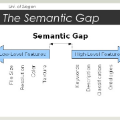In practical recommendation scenarios, users often interact with items under multi-typed behaviors (e.g., click, add-to-cart, and purchase). Traditional collaborative filtering techniques typically assume that users only have a single type of behavior with items, making it insufficient to utilize complex collaborative signals to learn informative representations and infer actual user preferences. Consequently, some pioneer studies explore modeling multi-behavior heterogeneity to learn better representations and boost the performance of recommendations for a target behavior. However, a large number of auxiliary behaviors (i.e., click and add-to-cart) could introduce irrelevant information to recommenders, which could mislead the target behavior (i.e., purchase) recommendation, rendering two critical challenges: (i) denoising auxiliary behaviors and (ii) bridging the semantic gap between auxiliary and target behaviors. Motivated by the above observation, we propose a novel framework-Denoising and Prompt-Tuning (DPT) with a three-stage learning paradigm to solve the aforementioned challenges. In particular, DPT is equipped with a pattern-enhanced graph encoder in the first stage to learn complex patterns as prior knowledge in a data-driven manner to guide learning informative representation and pinpointing reliable noise for subsequent stages. Accordingly, we adopt different lightweight tuning approaches with effectiveness and efficiency in the following stages to further attenuate the influence of noise and alleviate the semantic gap among multi-typed behaviors. Extensive experiments on two real-world datasets demonstrate the superiority of DPT over a wide range of state-of-the-art methods. The implementation code is available online at https://github.com/zc-97/DPT.
翻译:在实际建议设想中,用户往往与多种类型行为下的项目互动(例如点击、添加到工艺和购买)。传统的协作过滤技术通常假定用户只有单一类型的项目行为,因此不足以利用复杂的协作信号来学习信息陈述和推断实际用户偏好。因此,一些先驱研究探索多种行为异质的模型,以学习更好的表现方式,提高目标行为建议的执行情况。然而,大量辅助行为(例如点击和添加到DP-cart)可以向推荐者介绍无关的信息,从而误导目标行为(例如,购买)建议,提出两个关键挑战:(一) 淡化辅助行为,以及(二) 弥合辅助行为和目标行为之间的语义差距。根据上述观察,我们提出一个新的框架-淡化和快速通缩(DPT),以三阶段的学习模式解决上述挑战。特别是,DPT具备一种模式-强化到宽度行为,从而误导目标行为(即购买)建议,从而误导目标行为(即购买)建议,提出两个关键挑战:(一) 淡化辅助行为和(二) 缩小辅助行为(二) 弥补辅助行为和(二) 模拟(二) 将数据流数据流化) 系统化,以在前阶段学习系统化数据流数据流数据流化,以便进行。




